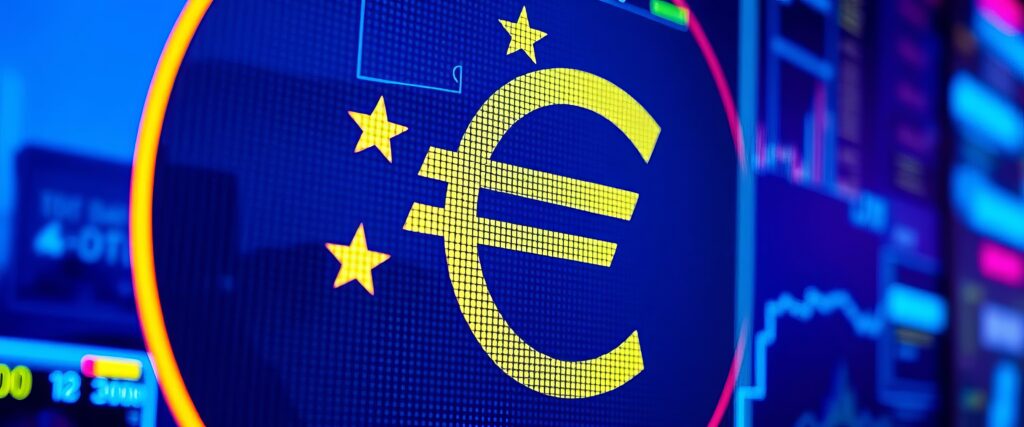
Key Takeaways:
- The ECB signed framework agreements with seven tech firms, including Feedzai and Giesecke+Devrient, to develop infrastructure for the potential digital euro.
- These firms will handle critical aspects like fraud detection, payment data security, offline payments, and alias-based fund transfers.
- No official launch decision has been made, but 2029 remains a possible timeline pending EU legislation.
The European Central Bank (ECB) has signed framework agreements with seven technology firms, with an eighth expected, to support development of the digital euro as part of its ongoing preparation phase.
These companies will work on critical infrastructure components such as fraud and risk management, secure payment data exchange, and software development.
ECB advances digital euro prep with tech partner deals pic.twitter.com/9wJqalYnL2
— Blockworks (@Blockworks_) October 2, 2025
Among them are AI fraud detection firm Feedzai and security specialist Giesecke+Devrient (G+D), which will also focus on offline payment functionality.
According to G+D’s CEO, the agreements mark the start of detailed planning and integration for the Digital Euro Service Platform, under ECB oversight and in line with EU law.
The ECB has been exploring the feasibility of a digital euro since 2021, moving into deeper preparation in late 2023.
While no final decision has been made, an official suggested a possible launch in 2029.
The agreements involve no payments at this stage and include flexibility for regulatory adjustments.
Additional features under development include “alias lookup,” enabling easier transfers without needing full bank details.
Meanwhile, EU regulators continue scrutinizing stablecoins, with the European Systemic Risk Board recommending restrictions on certain jointly issued tokens.

